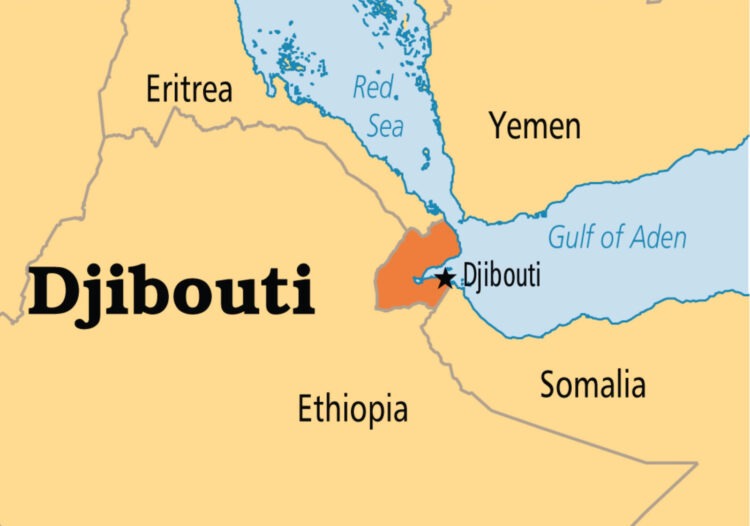Nestled in the Horn of Africa, Djibouti is a small but strategically significant nation that has become a focal point for global military operations. Despite its modest size—just 23,200 square kilometers and a population of around one million—Djibouti plays an outsized role in international geopolitics. Its unique location at the crossroads of the Red Sea and the Gulf of Aden has made it a vital hub for trade, security, and military operations, attracting the presence of some of the world’s most powerful nations. Today, Djibouti hosts military bases from the United States, China, France, Japan, and other countries, making it a rare example of a nation where rival superpowers coexist in close proximity.
A Geopolitical Hotspot
Djibouti’s strategic importance stems from its location. It sits at the entrance to the Bab el-Mandeb Strait, one of the world’s busiest shipping lanes, connecting the Mediterranean Sea to the Indian Ocean. Nearly 30% of the world’s shipping passes through this narrow chokepoint, making it critical for global trade and energy supplies. For superpowers, maintaining a presence in Djibouti ensures the ability to monitor and secure this vital maritime route, which is essential for both economic and military purposes.
The country’s proximity to conflict zones in the Middle East and Africa further enhances its value. Djibouti serves as a launchpad for counterterrorism operations, peacekeeping missions, and humanitarian efforts across the region. Its stable government, relative to its neighbors, has also made it an attractive partner for foreign powers seeking a reliable base of operations.
 AFPFrench president Emmanuel Macron delivers a speech to soldiers on the French military base in Djibouti on March 12, 2019.
AFPFrench president Emmanuel Macron delivers a speech to soldiers on the French military base in Djibouti on March 12, 2019.
The Military Bases of Djibouti
Djibouti’s landscape is dotted with foreign military installations, each serving the strategic interests of its respective country. Here are some of the key bases:
- United States – Camp Lemonnier: The U.S. military’s largest permanent base in Africa, Camp Lemonnier, is home to approximately 4,000 personnel. Established in the early 2000s, it serves as a critical hub for counterterrorism operations in the region, particularly against groups like al-Shabaab in Somalia and al-Qaeda in the Arabian Peninsula. The base also supports maritime security and intelligence-gathering efforts.
- China – People’s Liberation Army Support Base: In 2017, China opened its first overseas military base in Djibouti, just a few miles from Camp Lemonnier. The base underscores China’s growing global ambitions and its desire to protect its economic interests, particularly along the Belt and Road Initiative routes. The facility supports anti-piracy missions, peacekeeping operations, and humanitarian efforts, but it has also raised concerns among Western powers about China’s expanding military influence.
- France – French Forces in Djibouti (FFDJ): France, Djibouti’s former colonial ruler, has maintained a military presence in the country since its independence in 1977. The French base, which houses around 1,500 troops, is one of France’s largest overseas deployments. It plays a key role in regional security, counterterrorism, and intelligence operations.
- Japan – Japan Self-Defense Force Base: Japan’s only overseas military base is located in Djibouti, reflecting its commitment to combating piracy in the Gulf of Aden, which threatens its shipping industry. The base also supports Japan’s broader strategic interests in Africa and the Middle East.
- Italy and Others: Italy and several other nations, including Germany and Spain, have also established smaller military presences in Djibouti, often as part of multinational missions or logistical support operations.
 AFPUS Defense Secretary James Mattis (L) is greeted by US Marine Corps General Thomas Waldhauser (R) as he arrives at Camp Lemonnier in Ambouli, Djibouti, on April 23, 2017.
AFPUS Defense Secretary James Mattis (L) is greeted by US Marine Corps General Thomas Waldhauser (R) as he arrives at Camp Lemonnier in Ambouli, Djibouti, on April 23, 2017.
Economic and Political Implications
The presence of so many foreign military bases has significant economic and political implications for Djibouti. The country earns substantial revenue from leasing land to foreign powers, which helps fund infrastructure projects and economic development. However, this reliance on foreign military presence also raises questions about Djibouti’s sovereignty and long-term stability.
Politically, Djibouti has managed to maintain a delicate balancing act, fostering relationships with rival powers without overtly favoring any one side. This neutrality has allowed it to avoid becoming entangled in the geopolitical rivalries that often accompany such close proximity of competing military forces.
Challenges and Opportunities
While Djibouti benefits from its strategic location, it also faces significant challenges. The country struggles with high unemployment, poverty, and limited natural resources. Its reliance on foreign military bases for revenue is not a sustainable long-term solution, and there is a need for greater economic diversification.
 Getty ImagesThis photo taken on August 1, 2017 shows Chinese People’s Liberation Army personnel attending the opening ceremony of China’s new military base in Djibouti.
Getty ImagesThis photo taken on August 1, 2017 shows Chinese People’s Liberation Army personnel attending the opening ceremony of China’s new military base in Djibouti.
At the same time, Djibouti has the potential to leverage its position as a global logistics hub. The country has invested heavily in port infrastructure, including the Doraleh Multi-Purpose Port, which serves as a key transshipment point for goods entering and leaving East Africa. By expanding its role in trade and logistics, Djibouti could reduce its dependence on military-related income and create more opportunities for its citizens.
Conclusion
Djibouti’s unique position as a host to multiple foreign military bases highlights its importance in global geopolitics. As a strategic crossroads, it offers unparalleled access to some of the world’s most critical shipping lanes and conflict zones. However, the country must navigate the complexities of hosting rival superpowers while addressing its own economic and social challenges. If it can strike the right balance, Djibouti has the potential to emerge as a thriving hub of trade, security, and diplomacy in an increasingly interconnected world.









